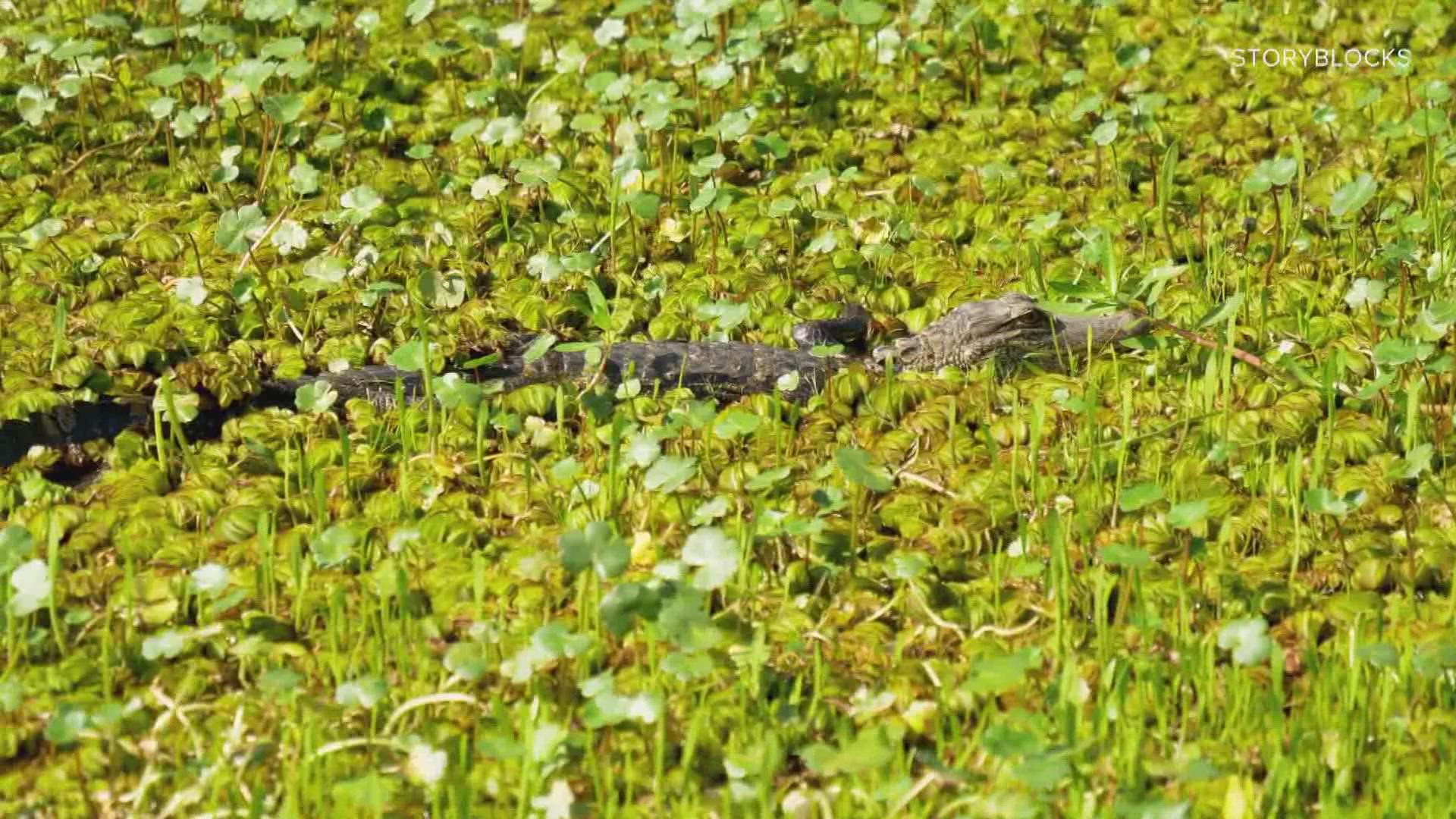BELL COUNTY, Texas — A Facebook image of an alligator on Stillhouse Hollow Lake has left some people wondering what alligators are doing in Bell County.
Jonathan Warner, the Alligator Program leader for the Texas Parks and Wildlife Department, told 6 News some alligators do, in fact, call Bell County home.
Most of the state's alligator population is closer to the states Southeastern coast in marshes, but Warner said they do get around.
"There are alligators in over 100 counties in Texas, including in Bell County. There isn't a large population, but they have been observed in the Stillhouse lake area and along the Lampasas river for many, many years now," Warner said.
Stillhouse Hollow Lake and Belton Lake have dams controlled by the Army Corps of Engineers and their primary purpose is flood control. Warner said they still make a great place for an alligator to call home.
"Those artificial, man-made water bodies are excellent habitats for alligators and a host of other species as well. Obviously there is going to be a good, functional food web in a lot of these places with invertebrates and crawfish and fish and turtles," Warner said.
Bell County lakes are also a safe place for alligators to live. The Army Corps of Engineers' mangers for both the Belton and Stillhouse Hollow Lakes told 6 News it is illegal to hunt alligators on those public properties.
According to Warner, alligators can only be hunted on private property in the county, and public properties like parks and lakes are off limits. Even on private properties, alligator hunting season only goes from Apr. 1 - June 30.
Warner said hunters would need to by a Texas hunting permit with a special tag to kill a gator, and they can only kill one per year.
While some home owners may worry about the need to kill alligators in self-defense, Warner said that situation is unlikely.
"Their normal behavior and their natural disposition is to stay away from people," Warner said. "As long as the alligator is not being approached or harassed or fed."
Warner said most issues are created by local individuals leaving out food for an alligator or approaching them regularly, which makes them more comfortable around humans.
If an alligator gets stuck in a yard or swimming pool on a persons property, Warner said people should call for experts that can safely remove the animal.
Homeowners can call (512) 389-4848 to get in touch with the state's Nuisance Control Program.
Warner said there are people who are trained to handle those situations, but people will likely never need that help. Instead, Warner said an alligator sighting should be a rare treat for a person in Central Texas and you will likely only catch a glimpse before they get away.
"Chances are, if there is one in the area, you are not going to see it because it wants nothing to do with you," Warner said. "This is a native Texan and a natural part of our ecosystem."
More from KCEN:

